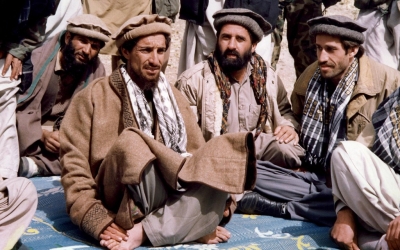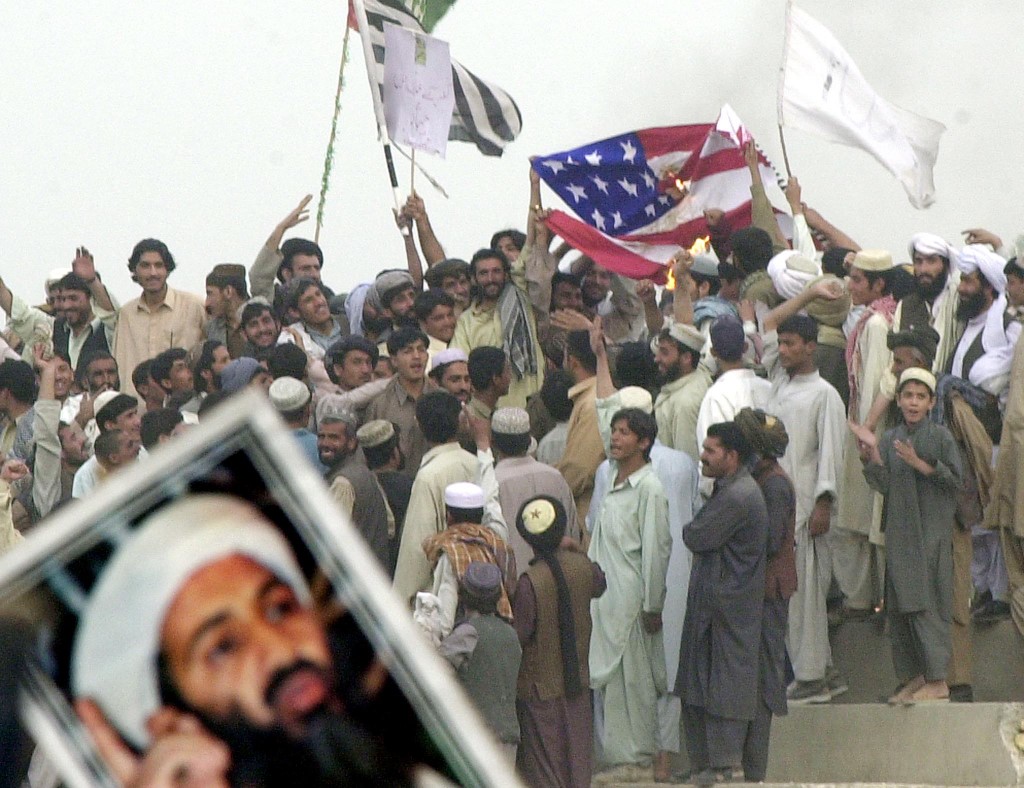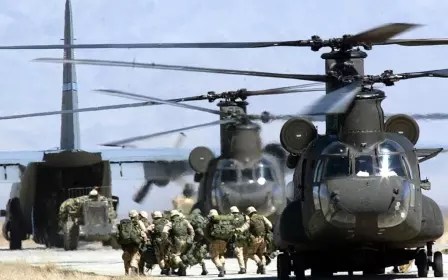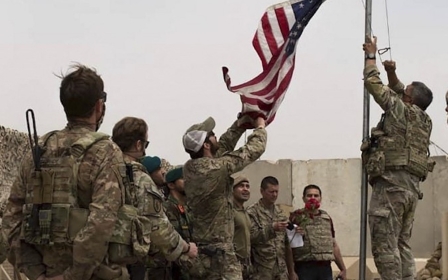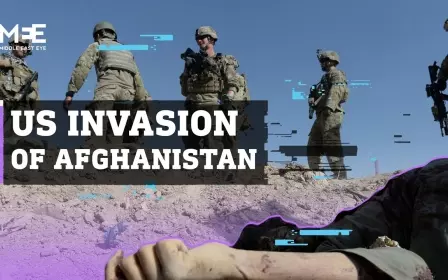Why the US war in Afghanistan was a resounding success
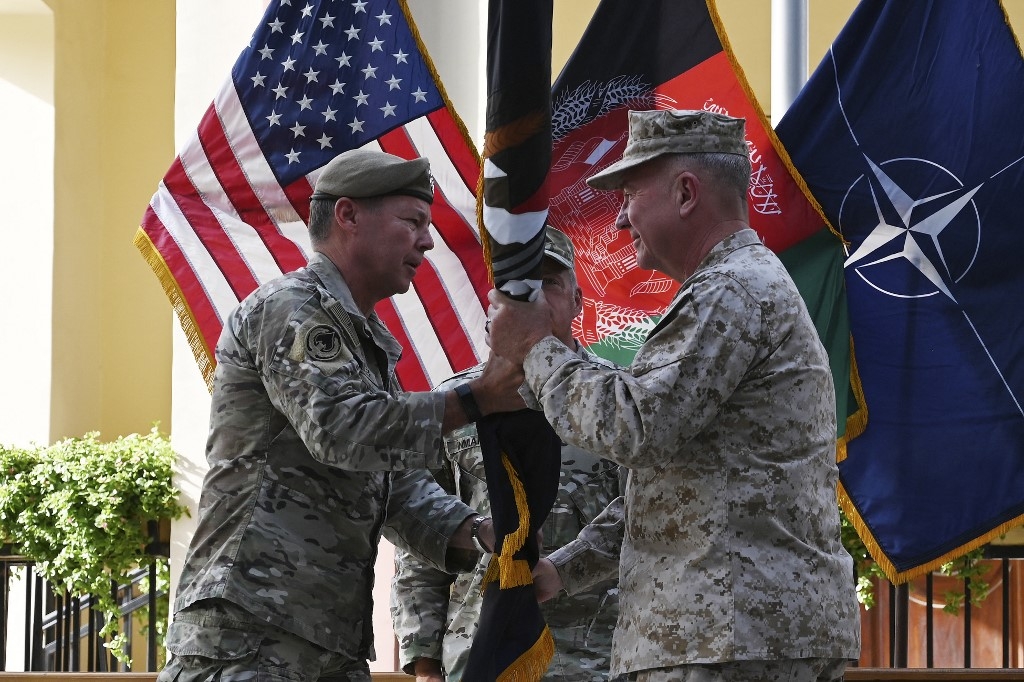
US President Joe Biden’s announcement of a military withdrawal from Afghanistan after two decades of invasion and occupation has generated predictable reactions. The cliched succession of articles by both liberal and reactionary commentators declaring that the US miserably failed in Afghanistan totally misses the point.
They presume, historical facts be damned, that the point of this invasion and occupation was to bring peace and prosperity to Afghanistan, to defeat the Taliban, to destroy al-Qaeda, and to ensure democratic rule in a Muslim country. These are all delusional assumptions.
What happened to Afghanistan during the US occupation, or what will happen to Afghans now ... is not of the slightest concern to American strategists
Successive US administrations, from Bush, through Obama and Trump, down to Biden, never had any such objectives. The US has spectacularly succeeded in doing precisely what it intended: to flex its military muscles, test its newest weaponry and warfare tactics, assert its global hegemony, and manoeuvre its regional strategic position against Russia and China.
The gaudy and gauche notion that the US went to Afghanistan in order to defeat the Taliban, eradicate al-Qaeda, and secure peace and prosperity for the Afghan people is just too puerile to entertain. Why would the US do anything like that?
Over the last four years, under the Trump administration, the US has been exposed for the corrupt and dysfunctional racist oligarchy that it has always been. In a country where the very foundations of public education are crumbling for both boys and girls, why would the state care about the education of Afghan girls - a cliched card still flashed by the (neo)con artists?
We must understand why the US invaded Afghanistan in the first place, before we judge it a success or failure.
Asymmetrical warfare
For decades Central Asia has been the prize of US imperial strategists. The events of 9/11 were an excuse and a subterfuge for the US to flex its military prowess and reconfigure its strategic options of asymmetrical warfare in post-Soviet Central Asia. Neither Afghanistan, nor indeed the Taliban, were ever the primary issues; they were the smokescreen.
What happened to Afghanistan during the US occupation, or what will happen to Afghans now that the US has left and the Taliban are on the move to recapture the territories they lost, is not of the slightest concern to American strategists or their imperial priorities.
China is rising as a major economic and military threat; Russia is always a menace; North Korea is a pain in the neck; and Iran is misbehaving around the US’s favourite settler-colony. These are the main and overriding issues for the US. As for Afghanistan, why should they care? The fate of 40 million human beings left at the non-existent mercy of the malignant fanaticism of the Taliban is entirely irrelevant in such calculations.
Both Biden and former US President Donald Trump have had other domestic and regional priorities, perhaps at odds with each other’s politics, but identical when it comes to the calamitous consequences for Afghanistan. The same is true about former presidents Barack Obama and George W Bush, now close family friends: Obama continued the strategic expansions and drone-driven enhancements of the Bush administration.
The primary target of the criminal atrocities of both al-Qaeda and the Taliban were always Muslims in general, and Afghans in particular. The spectacular lunacy of 9/11 was a sideshow - a deadly visual performance to project power they never had. Spectacular acts of suicidal violence are terrorising signs of desperation and weakness.
Strategic success
Twenty years after the events of 9/11 and the US invasion of Afghanistan, the US is in a much stronger military position globally than it has ever been. That this military power lacks moral authority is entirely irrelevant; it is mirrored by Israel’s land theft in Palestine, the Saudi-Emirati invasion of Yemen, the Turkish military incursions into Syria, and Russia’s ever-bolder presence in Eastern Europe, Central Asia and the Arab world.
Over the last 20 years, the Afghanistan war has been a key strategic success for the US in this larger theatre of operations. They now know the terrain far better than they ever did, and are poised to counter the Russian and Chinese spheres of influence.
There is nothing sillier than the cliched assumption of Afghanistan as the “graveyard of empires”. The US empire did not die in Afghanistan, nor did Russian imperial designs before it. Quite the contrary: both the US and Russia are robust military and imperial machines at work from Central Asia to the Indian Ocean and beyond. Their only real rival is China.
After 20 long years, $2 trillion in military spending, and thousands of American and Afghan lives, the US saw its arms industry enriched, its newest weaponry tested, and its military officers rising through the ranks. They learned from the Taliban the means and ways of fighting guerrilla warfare. Russia recently offered the US the use of Russian military bases in Central Asia for “information gathering” from Afghanistan. What sort of a “graveyard” of empires is this?
'Mission accomplished'
As for general public opinion, Americans grew weary of the Afghanistan war long ago. The 9/11 anniversary itself has become a series of boring and banal events, the attacks having served their purpose of drumming up justification for the US “war on terror”. Bush was absolutely right when, aboard the USS Abraham Lincoln aircraft carrier in May 2003, he triumphantly declared: “Mission accomplished!” He was referring to the Iraq war, but he might as well have been talking about Afghanistan.
Empires are lucrative business for imperialists, while bringing only indignity and misery to those they conquer
Today, Biden has huge domestic responsibilities on his hands, and he does not want to be bothered with Afghanistan anymore. What the US has gained from its massive expenditure in the region is invisible to the naked eye - a matter of “national security,” and most certainly not an attempt to bring peace and prosperity and (God forbid) “democracy” to Afghans.
The US today is perfectly willing and able to dismantle democracy at home. It is not in any moral or political position to take democracy anywhere else.
The US adventure in Afghanistan turned the most educated and capable Afghans into collaborators with conquering military forces, and they are now running for their lives - and the US could not care less. Empires are a lucrative business for imperialists, while bringing only indignity and misery to those they conquer.
Afghanistan is the graveyard of tens of thousands of innocent Afghans who perished over the last two decades - and a resounding success for American militarism in the region and beyond.
The views expressed in this article belong to the author and do not necessarily reflect the editorial policy of Middle East Eye.
Middle East Eye propose une couverture et une analyse indépendantes et incomparables du Moyen-Orient, de l’Afrique du Nord et d’autres régions du monde. Pour en savoir plus sur la reprise de ce contenu et les frais qui s’appliquent, veuillez remplir ce formulaire [en anglais]. Pour en savoir plus sur MEE, cliquez ici [en anglais].



